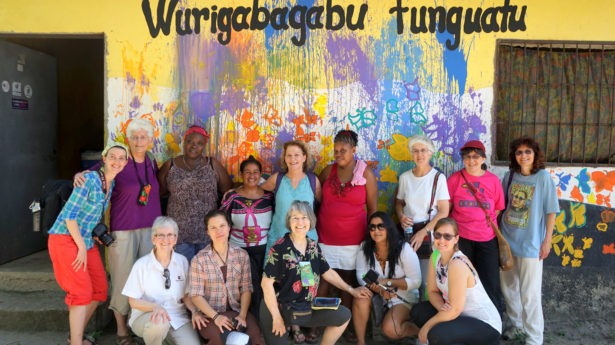The Unitarian Universalist Service Committee advances human rights through grassroots collaborations.
Torture and U.S. Complicity in Honduras
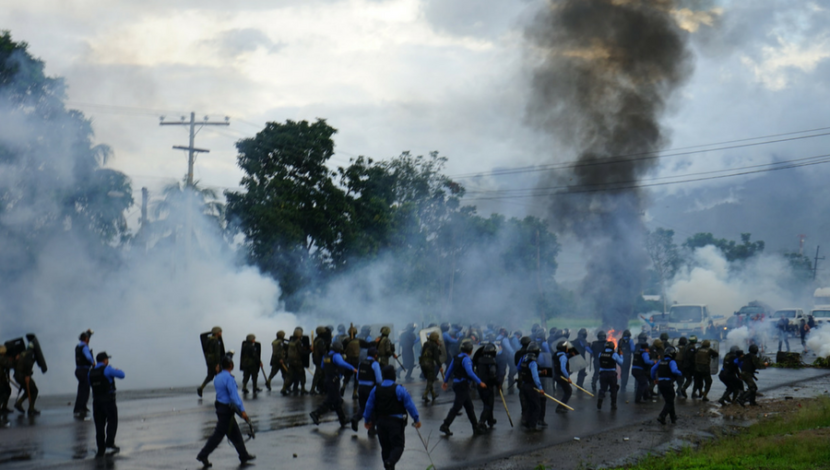
By on June 12, 2018
Last week, U.S. Department of Homeland Security Secretary Kirstjen Nielsen met with the President of Honduras, Juan Orlando Hernandez. They discussed – in the words of the official press release – Nielsen’s “support for Honduran efforts to increase security and prosperity in their country,” and “tangible ways to improve citizen security and enhance the rule of law in Honduras.”
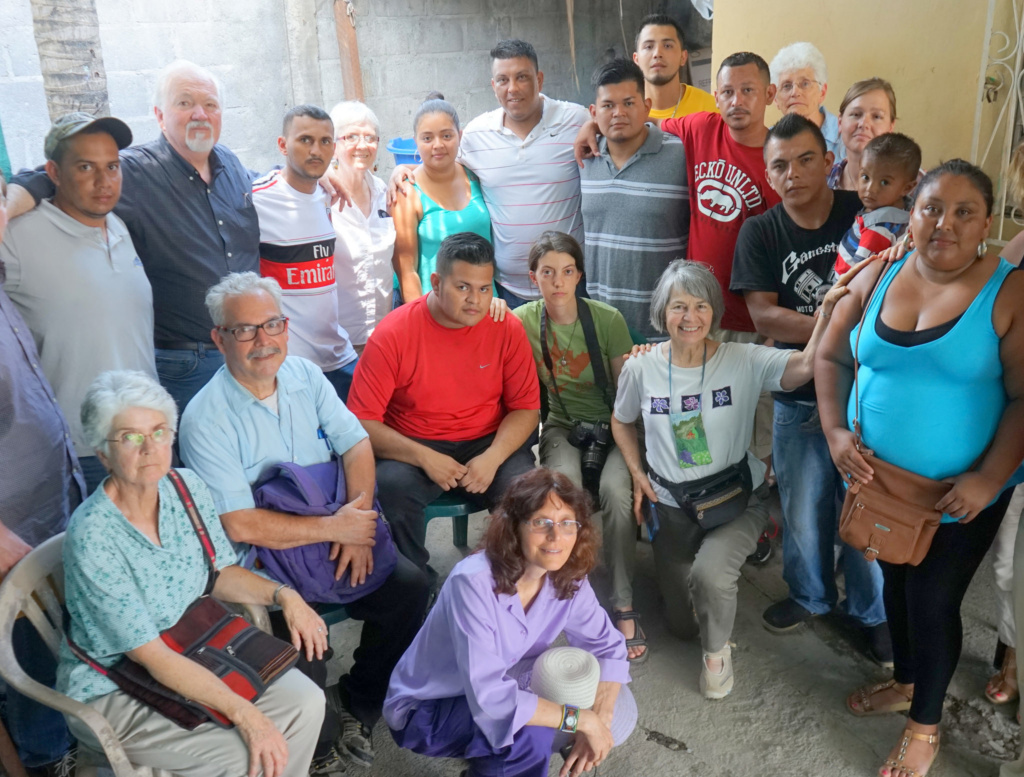
On our recent visit to Honduras, my colleagues and I met with people who have witnessed the effects of U.S.-backed “efforts to increase security and prosperity” first-hand. The reality they described is far from the official press statements.
As part of an accompaniment delegation organized by the SHARE Foundation and our partners at Radio Progreso, our team met with seven Honduran political prisoners in Pimienta. During protests in the wake of the disputed November 2017 election in the town, four police officers were assaulted and a police station burned down. The government appears to have used these incidents as a pretext to crack down broadly on the rights of dissenters.
On December 26, 2017, the people we spoke with were arrested in a targeted sweep. All were Pimienta residents or lived nearby, men and women, between 20 and 30 years of age. Several gave accounts of being roused from their beds in the middle of the night and taken without explanation. Below are excerpts from their stories.
Jonathan Ricardo Perla López told us:
The day they arrested me, they came into my house at two in the morning without any arrest warrant. They turned my house upside down. I turned on the light and opened the door, knowing that they could do something. I was scared… I was outside in the rain until six in the morning.
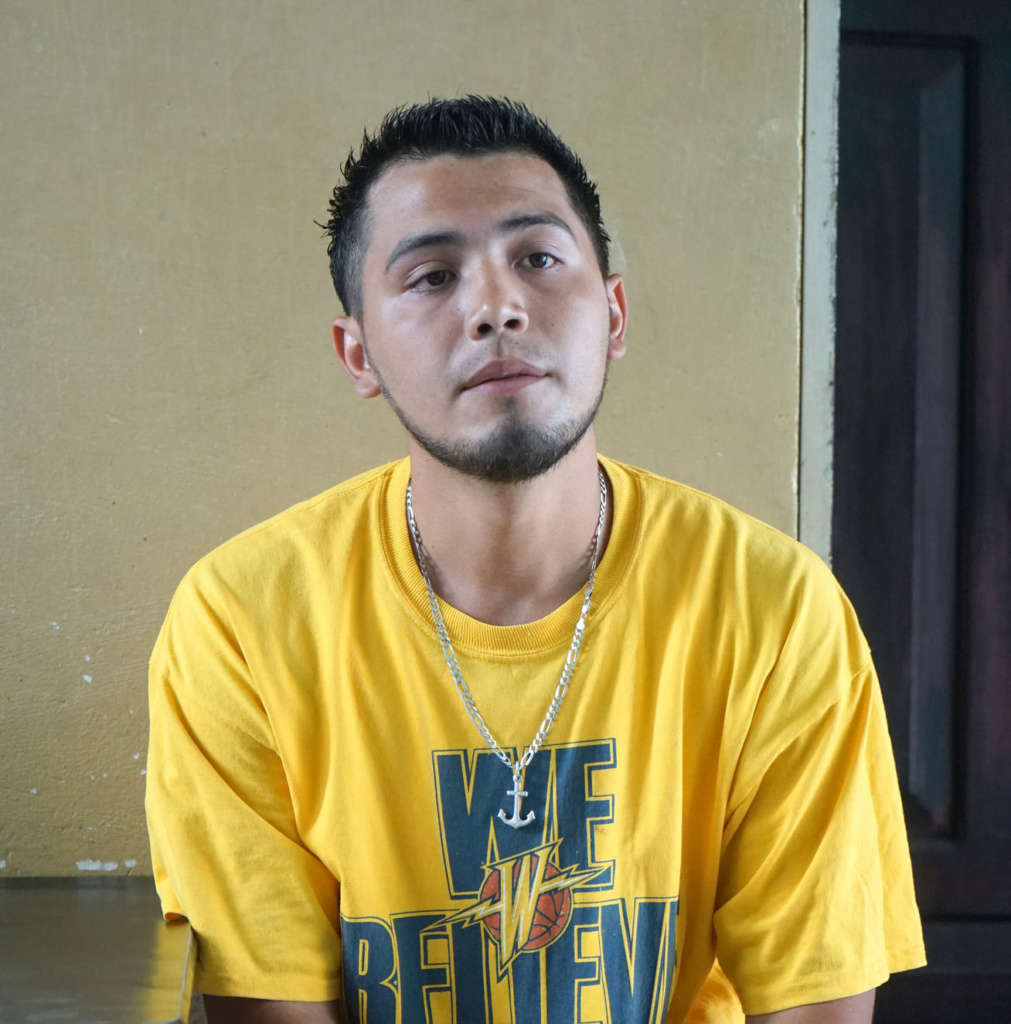
According to the testimony of Wilfredo Cáceres Sagastume:
I was arrested at four in the morning…My wife had only just gotten home, we had a ten-day old infant. I was nude in my bed, they threw me to the floor, they took me naked outside the house with my children and my ten-day old son. It was raining. I said to them let my children go in; they can do anything to me but let them go back inside. They beat me because of what I was asking.
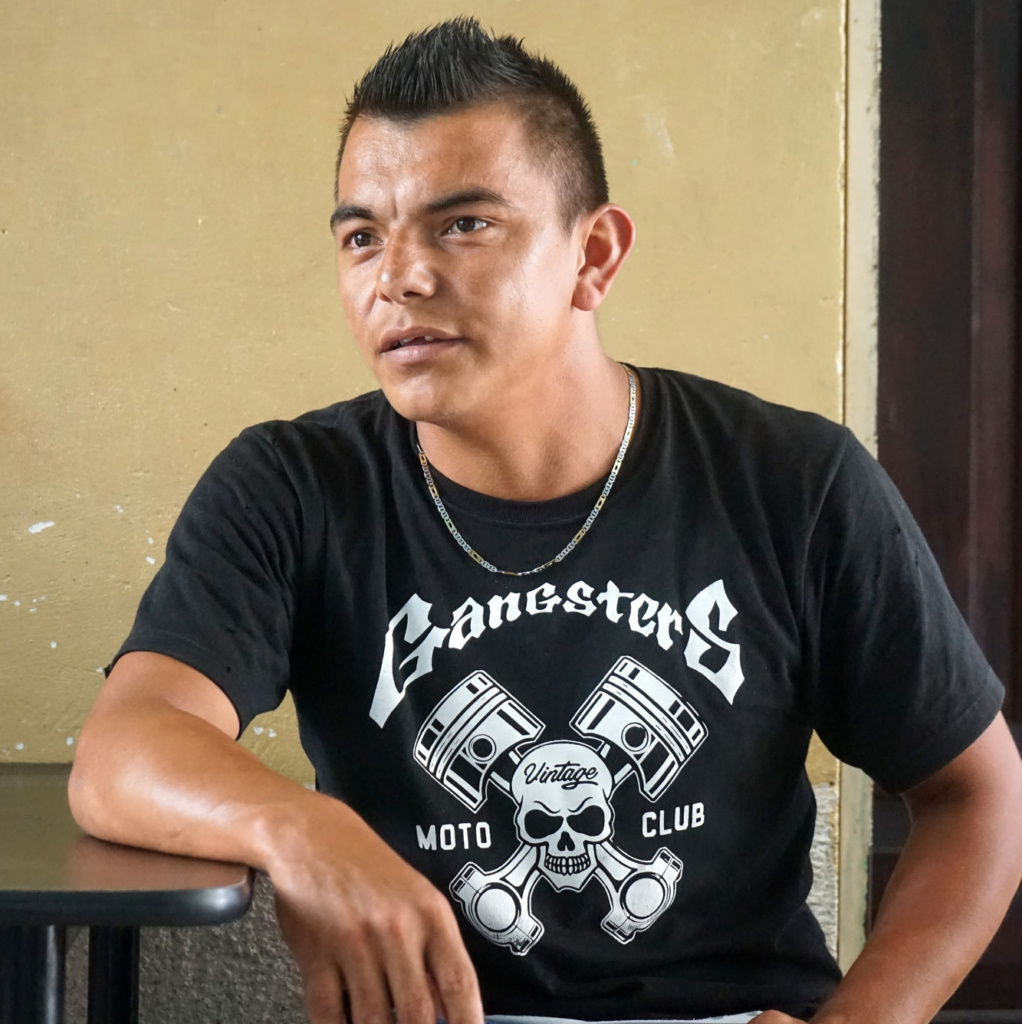
All the individuals we spoke with denied any involvement in the burning of the police station. While some had exercised their human rights by joining peaceful protests against the government, others insisted they were total bystanders targeted by police seemingly at random or as punishment for their political views.
From the testimony of Lourdes Johana Gómez Nuñez:
We decided to separate from the group when we realized there were people we didn’t know and that they were planning to burn the police station. When it actually happened we were in the house, but you could tell it was an atmosphere of fear. We realized that they were going to involve us because we’d been involved in protesting. That pattern happened… The police have been beating young people. They’ve been taking the kids other places and beating them, wanting them to say things that never happened.
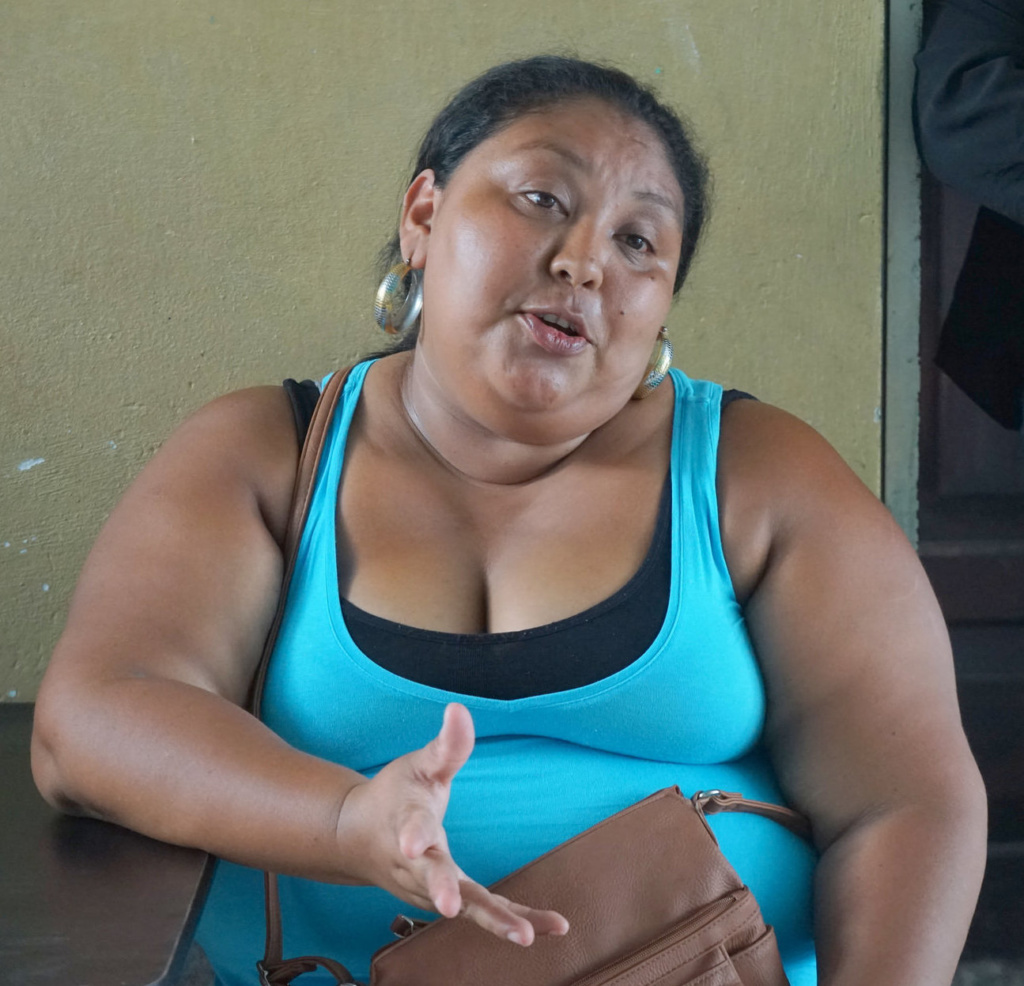
José Orlando Santos Ordóñez added:
The difference with me is that me and my brother Daniel were not involved in protests… The police said we’re not looking for who’s guilty, we’re looking for people to pay the penalty for the damage that was done.
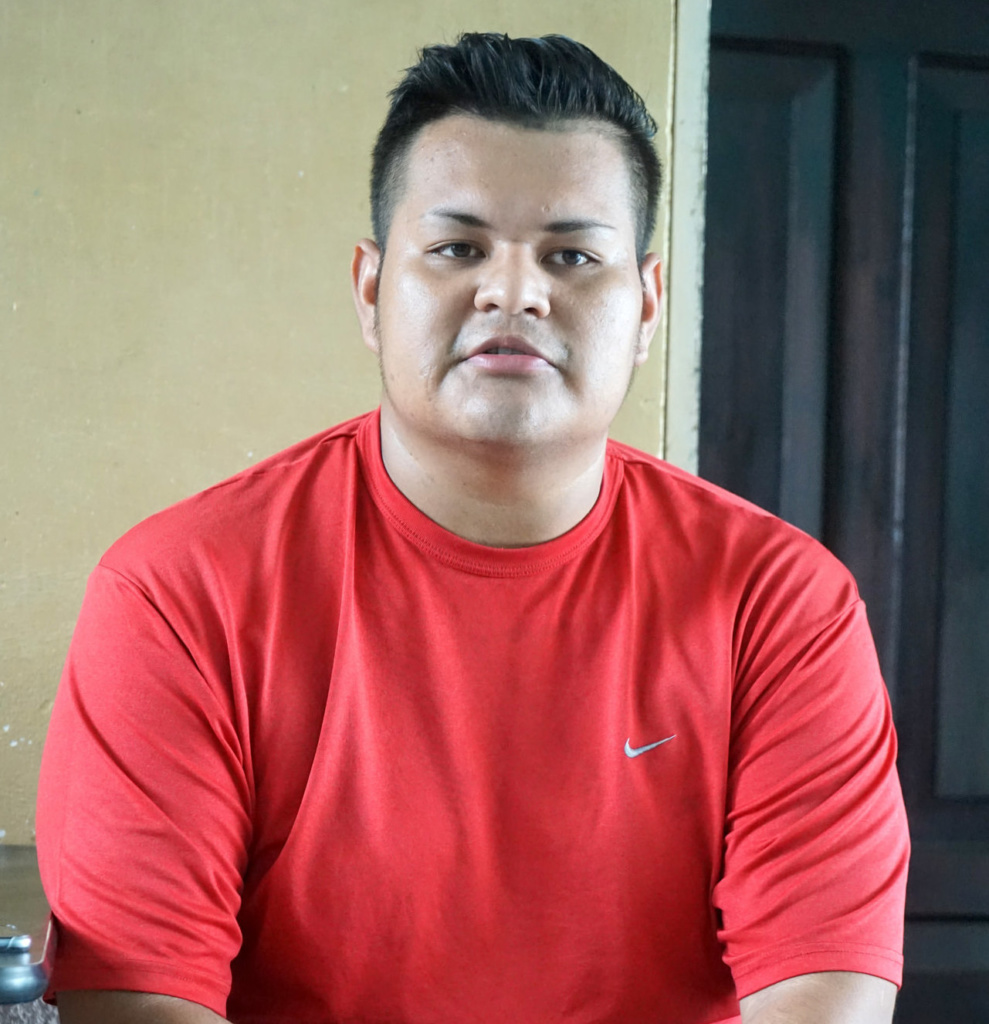
Many were held in isolation for 16 days in inhumane conditions. People described being tortured, threatened, and coerced into signing false confessions.
From the testimony of Francisco Miguel Gómez Ortega:
They took our clothes off, cut our hair, shaved our heads, placed us into solitary confinement…In cells meant for one person, they put seven people. We didn’t have any light for 16 days. We couldn’t see the light of day. We couldn’t shower. It was very cold, and we were sleeping on the floor, no blanket or mattress. They were trying to get to us mentally, psychologically every day. Because we could not see the light of day in the morning, the guards would say “good evening,” and in the night they would say “good morning.”
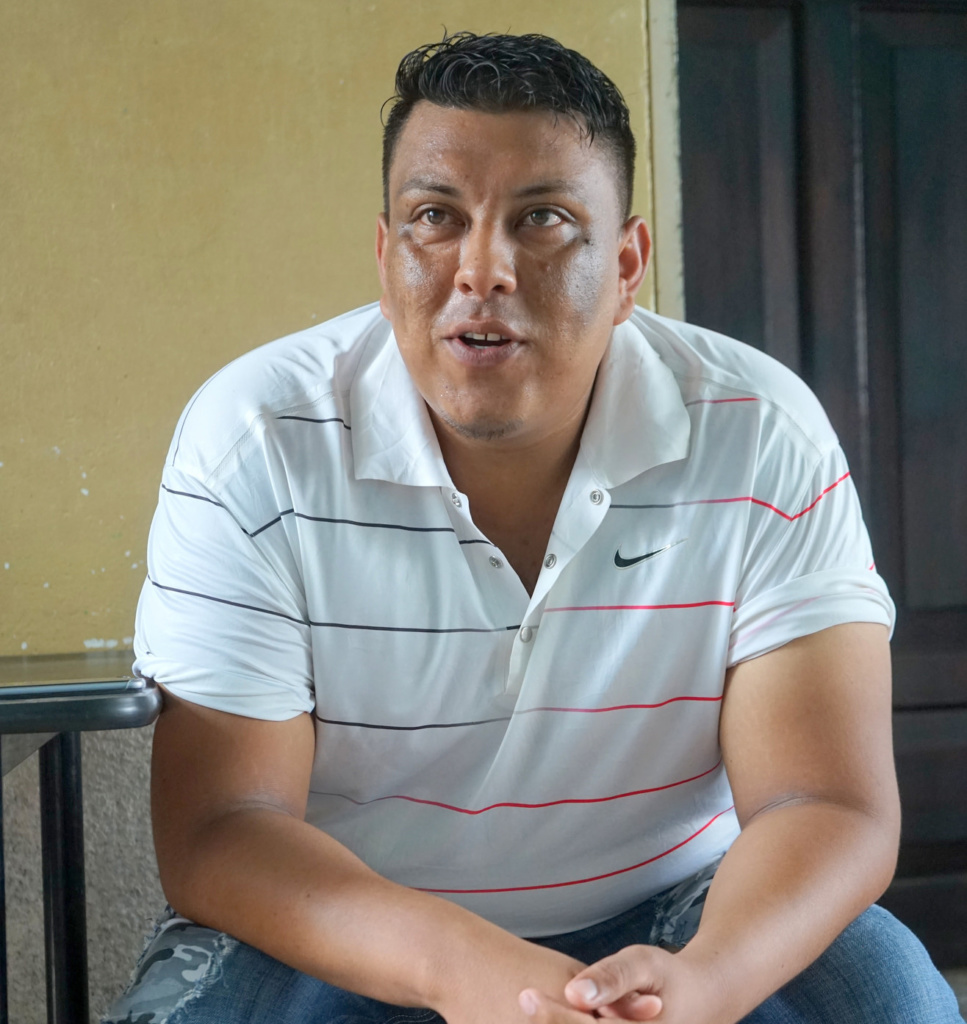
Roque Jacinto Alvarenga Corea gave one of the fullest and most disturbing accounts of torture and ill-treatment we heard:
They forced me to sign a paper. They read me my rights while beating me at the same time with the butt of a gun. They beat my hands. They said they would throw me in jail for 30 years because I had committed the crime of “terrorism” and “kidnapping” and “attempt to kill a police officer.” And of course I never did any of those things… We were segregated in a punishment cell for 16 days. They didn’t give us access to showers. Nothing in terms of personal hygiene…And they would threaten us that they would kill us. They would spray pepper spray into the cell. They would give us electric shocks. They said we were the scourge of society and we didn’t deserve to live.
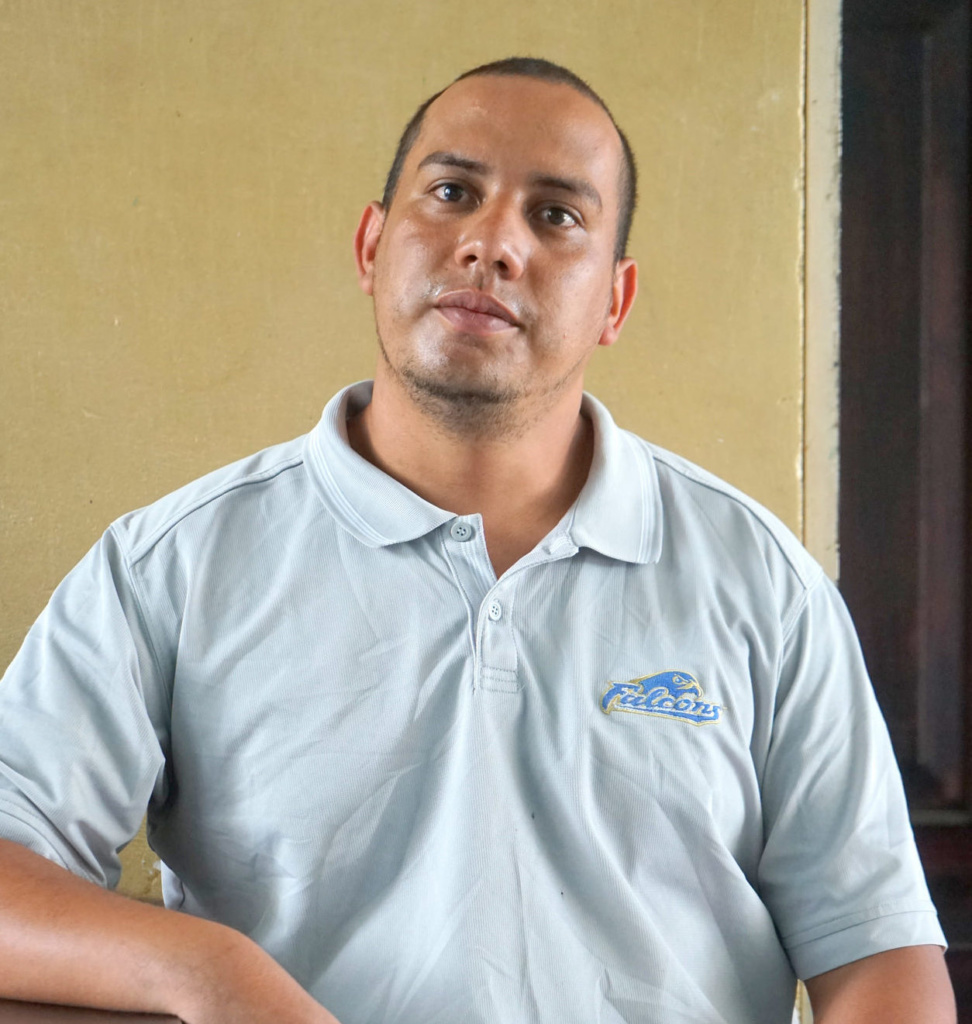
Another person described being served rice and beans that turned out to be full of rocks and rat feces.
These extreme human rights violations are not the isolated work of the Honduran security forces. This violence and abuse are made possible by the actions of the U.S. government. Over the past few years, millions of dollars of U.S. aid has flowed to the Honduran police. The United States has also trained special units of the Honduran security forces and maintains a military presence in Honduras at the Soto Cano air base. Both the Obama and Trump administrations have cemented this alliance with the Honduran government, despite a 2009 coup that overthrew the elected president and the recent wave of political violence that began last year.
U.S. officials like to claim that their training makes foreign security forces less likely to commit human rights violations. Frank Mora, a former deputy assistant secretary at the Department of Defense during the Obama administration, suggested to Univision that U.S. training may have been a factor in some Honduran police units’ refusal to take action against protesters during the government’s post-election crackdown.
But the stories we heard gave us no reason to think this is true. The people we spoke with identified the Honduran National Police, the “Cobras,” and an elite special force, the “Tigres,” as involved in their arrests. All three receive U.S. funding – and in some cases, military training as well.
Gómez Nuñez explained:
They arrested every one of the 11 members at exactly the same day and the same time, so it was clearly coordinated. They were members of the military police, National Police, DPI [Dirección Policial de Investigación – a special investigative unit of the Honduran police started by the Hernandez government], and Cobras.
Roque Jacinto Alvarenga Corea also identified the military police, the National Police, the Cobras and the Tigres as among the security forces who beat and tortured him during his arrest and detention.
As delegates from the United States, it was horrifying to hear first-hand what U.S. tax dollars are supporting in Central America.
Our knowledge was made all the harder to bear given the cruelty Central American migrants face at the U.S.-Mexico border, seeking safety from the exact persecution we learned about. While we were in Honduras we heard stories of parents and children being forcibly separated – a practice that legal and psychiatric experts argue is tantamount to torture. We learned that U.S. Customs and Border Patrol shot and killed 19-year-old Maya woman, Claudia Gómez González, and that a 33-year-old transgender woman, Roxsana Hernandez, died in U.S. custody after surviving a harrowing journey to seek asylum as part of a refugee caravan that crossed the U.S.-Mexico border in April.
Stories like these have only multiplied since our return. It is becoming clear that people are escaping torture and death in Central America only to be met with both at the hands of the U.S. government.
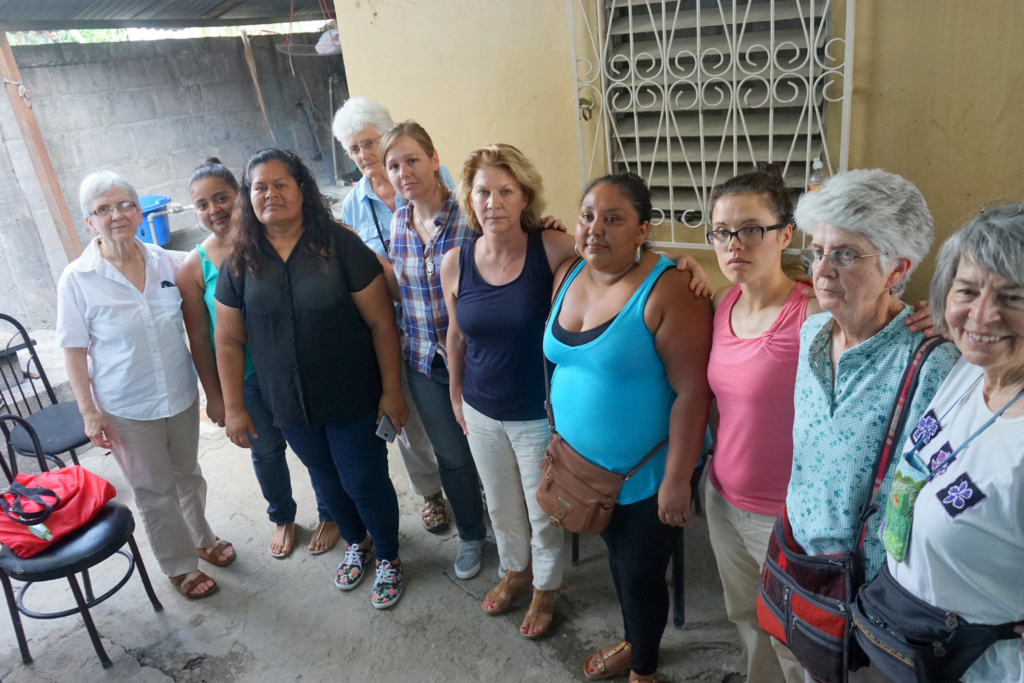
These horrors and injustices are not all we saw or heard in our conversations, however. What lingers with me as well is the basic decency that the political prisoners showed, even in the face of intolerable injustice. Though they had been subjected to inhuman violence, they held on to human values of compassion and mercy. One man told us that he would not wish what happened to him in prison on his worst enemy. Roque Jacinto Alvarenga Corea added:
The prisons aren’t what we thought they were. They are killing people inside little by little. I’m sure there are people there who have made mistakes. But they shouldn’t treat them like that. They too are humans just like us.
After hearing these stories, the words of Archbishop Oscar Romero reverberated in my mind. Romero was a Salvadoran human rights defender who spoke out against U.S. military aid to the government of El Salvador in the 1980s and was ultimately assassinated for his work. He remains a source of inspiration for the human rights movement in Central America, and a large portrait of Romero hangs in the common room at the office of our partners, Radio Progreso. In 1977, he wrote: There is no dichotomy between humanity and God’s image. Whoever tortures a human being, whoever abuses a human being, whoever outrages a human being, abuses God’s image.
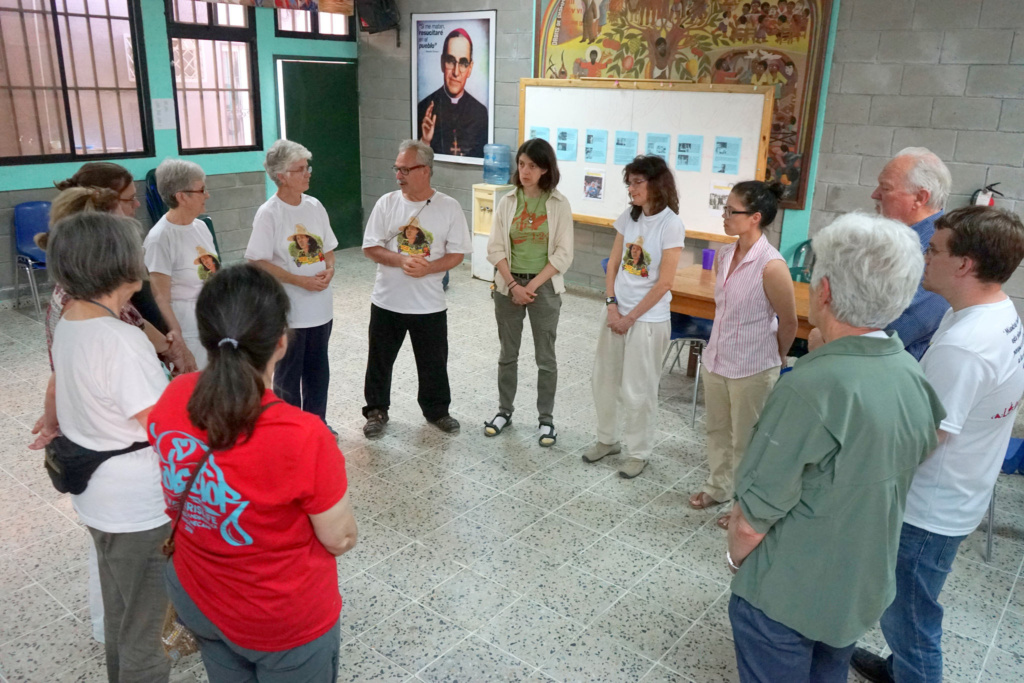
In the face of these seven individuals who were tortured by their government, in the face of all migrants who are abused and disappeared, is the face that Romero described as the image of God. It is the face of our shared humanity.
Click here to read part one. All photos by Mark Coplan.
Read This Next
Uncertainty in Honduras
The crisis triggered by the recent elections continues, and the circumstances surrounding this situation highlight the United States’ responsibility to take action. Read More →
